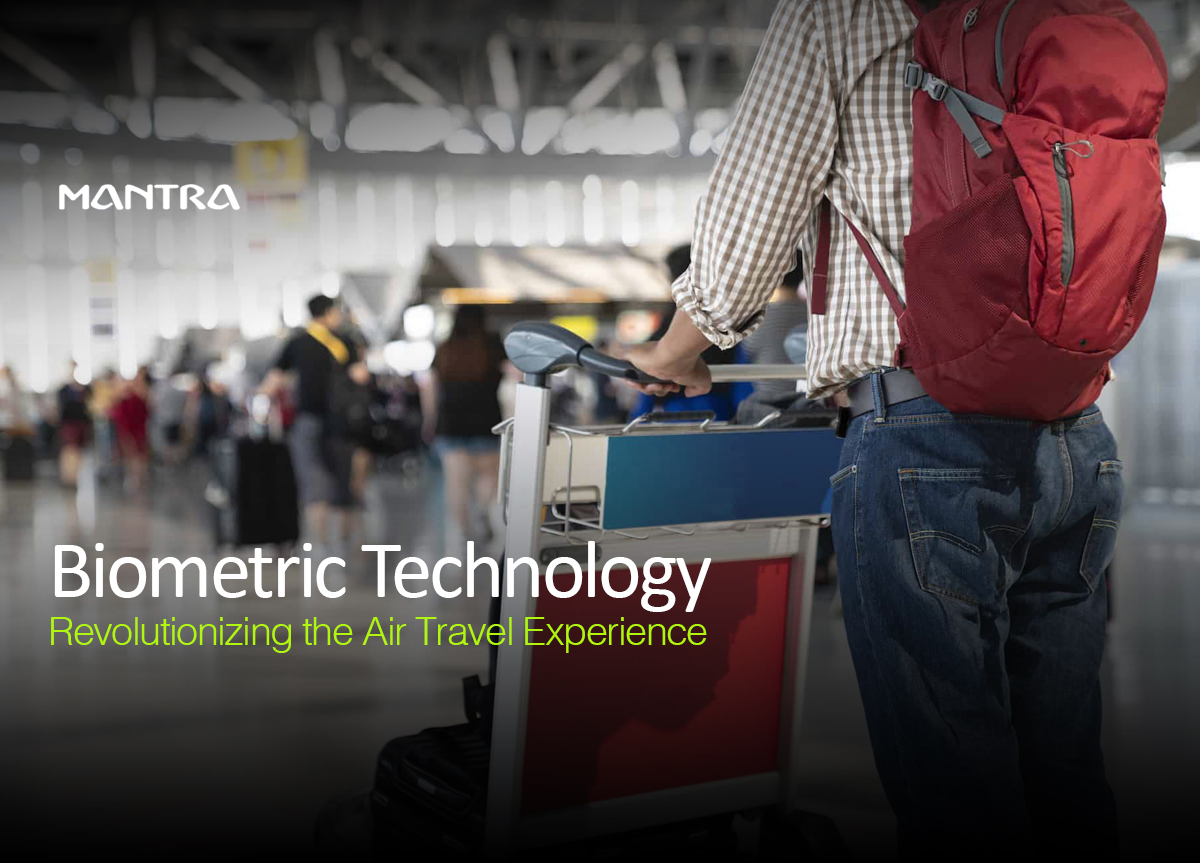
The world is entering into a digital era, which is not only defining Industrial Revolution 4.0, but also altering various aspects of human lives. The emerging technologies like Biometrics, AI, etc. have opened doors to seamless and simple user-experience for consumers, from making payments, accessing bank accounts, toair travel.
In recent times, biometric technology is gaining a lot of popularity in the air travel industry by offering a secure, time-saving, and seamless identification & authentication security solutions. To deal with the rapid rise in the number of travelers, Airplane terminals, border security forces, & airlines are widely embracing biometric systems, which is predicted to be twofold by 2036.
The challenges faced by air travel industry
The growing number of airline passengers is creating huge challenges for the air travel industry,like long queues at airports, security concerns, unpredictability, time-consuming traveler identification processes, and much more.
Over the past few years, the air travel industry in India has witnessed phenomenal growth. With airline passenger traffic of above 100 million during 2016-17, India is likely to emerge as the world's 3rd largest aviation market by 2026.
With such an increasing amount of air travelers, airports & airlines can't work efficiently without embracing technological advancements, leading to time-consuming and inaccurate verification processes, longer passenger queues, documentation fraud, identity theft, etc.
Moreover, the traveler experience gets worse with more and more number of air transport users, leading some airport terminals or airline companies to suffer, if they are not ready to cater to technological innovation.
The rise of biometrics in air travel industry
As we stand on the brink of technological sophistication, more and more airports & airline companies are turning towards the adoption of state-of-the-art biometric technology to better control the flow of airline passengers – from buying an airline ticket, dropping luggage off the conveyer to boarding a flight.
Biometrics enables rapid and precise identification & authentication of air travelers for the seamless air travel experience. With biometric scanner devices, airline passengers no longer require to carry paper-based boarding pass or passport as their physical traits like a fingerprint, IRIS, face, or palm-vein will itself act as a boarding pass. It is one of the most exciting biometrics features for flyers, which ensures a quick check-in process at airports.
Globally, numerous airplane terminals and carriers have already begun to roll out ID management based on biometric technology inside their own air terminal environment. Airplane terminals such as Muscat, Orlando and Brisbane airports have taken the primary steps towards actualizing e-boarding process and automated traveler ID checks, where travelers can utilize just their face as their passport or boarding card.
Benefits of Biometrics Technology
Automates the passenger’s verification process
Provides enhanced security
Reduces longer queues or eliminates the queue
Seamless, faster, and less intrusive passenger experience
Prevents the document fraud
Improves air traveler’s satisfaction and facilitations
Comments